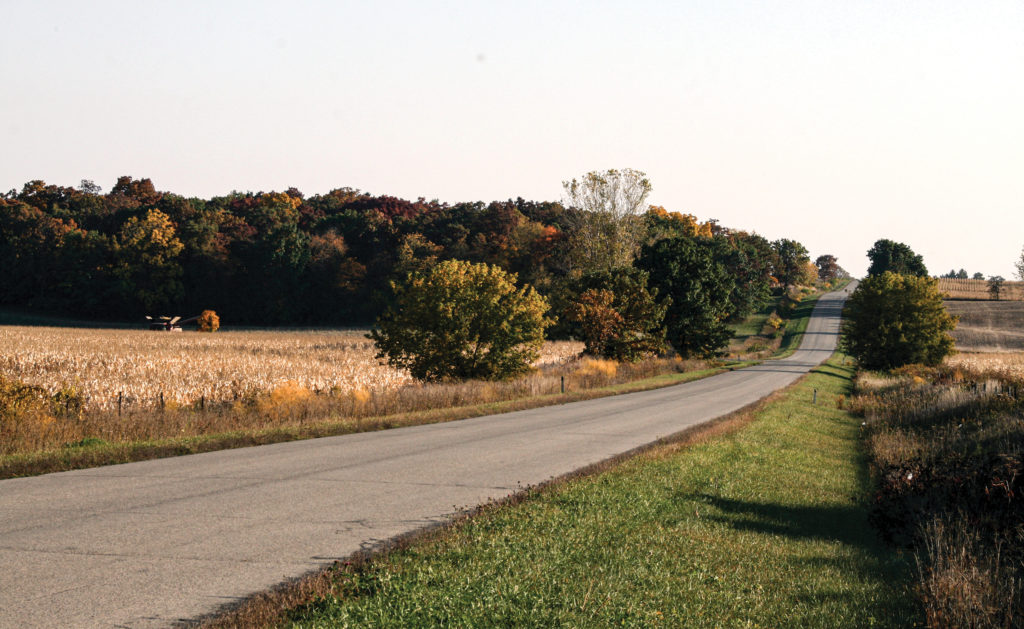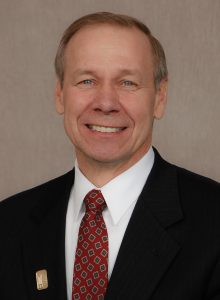 I’ve spent a good amount of time on the road during my last six years as President of Wisconsin Farm Bureau. I feel like I have spent equally as long talking about transportation issues in our state.
I’ve spent a good amount of time on the road during my last six years as President of Wisconsin Farm Bureau. I feel like I have spent equally as long talking about transportation issues in our state.
As part of the DRIVE coalition, WFBF has expressed its concerns to policymakers regularly. DRIVE stands for Devote Resources, Invest for a Vibrant Economy. DRIVE coordinates and implements a legislative advocacy strategy to enact a sustainable, long-term transportation plan that will keep Wisconsin’s economy strong. I co-chair DRIVE along with Tom Diehl, co-owner of Tommy Bartlett Incorporated in Wisconsin Dells and Steve Baas, senior vice president of the Metropolitan Milwaukee Chamber of Commerce.
This coalition was put together to impact discussions on transportation and to raise awareness of the immediate need for a solution to funding these needs.
I have been actively engaging the coalition and our lawmakers on the need for a fix to our transportation issues. It doesn’t take long into your Sunday drive through the countryside to realize we are underserving the communities in rural Wisconsin.
Our town boards are put in a tough spot when it comes to finding a way to maintain their roads and bridges. Additionally, our county boards have their struggles as well.
We were encouraged to see progress on transportation included in the budget. However, the one-time funding of $95 million in general funds for local road projects is just a start. Our political leaders realize something needs to be done. Unfortunately, the political bridge to get over will take some time. Regardless, we have had productive conversations and try to stay as positive as possible.
The future of our road situation must be thought through strategically. We must prioritize the issues we have with maintaining our local roads. That means finding additional funding for maintenance.
The creation of new roads must also be addressed. While growth must continue to happen, that growth must be deliberate and planned while happening at a reasonable rate. Roads not only cost money to build but, again, they must be maintained. Wisconsin Farm Bureau’s state policy supports improvement and maintenance of existing highways and roads rather than new construction, using existing right-of-ways whenever possible. We continue to emphasize that with our legislators.
Small creeks and springs are one of the features that make Wisconsin unique. This means that local bridges and culverts are a common occurrence while driving through Wisconsin’s countryside.
When culverts are damaged and unusable it creates a transportation bottleneck for agriculture equipment.
Many local municipalities struggle to meet the balance between the funds in their transportation budget and supporting their largest economic driver: agriculture. While it may be unreasonable to expect that every box culvert in Wisconsin is built to the standards to carry the weight of a packing tractor, there must be a realization that rural agriculture needs a reliable infrastructure system to get their commodities from the farm to market.
We are going to have to get more strategic as an industry on where our money is invested and how. For example, wouldn’t it be helpful if priority routes for agriculture were identified and transportation funds were directly targeted to help maintain or improve those routes?
As I travel Wisconsin roads transportation is a topic I often think about and I know you do too. Transportation is an opportunity for our organization to lead on an issue that affects every farmer in the state. That’s why no matter how long the road is to get to a solution, we have to continue to keep this topic on the minds of our leaders.
This column originally appeared in the August|September 2019 issue of Rural Route.
Jim Holte
 Jim Holte was elected president of the Wisconsin Farm Bureau Federation in 2012. He was elected to the WFBF Board of Directors in 1995. He represents District 9 which consists of the Barron, Chippewa, Dunn, Pierce, Polk, Rusk, Sawyer and St. Croix county Farm Bureaus as well as the Superior Shores County Farm Bureau (made up of Ashland, Bayfield, Douglas and Iron counties). Jim was elected to the American Farm Bureau Federation Board of Directors in January of 2015 as a representative of the Midwest region. Jim grows corn, soybeans and alfalfa on 460 acres of land south of Elk Mound. He and his wife, Gayle, have two children and five grandchildren.
Jim Holte was elected president of the Wisconsin Farm Bureau Federation in 2012. He was elected to the WFBF Board of Directors in 1995. He represents District 9 which consists of the Barron, Chippewa, Dunn, Pierce, Polk, Rusk, Sawyer and St. Croix county Farm Bureaus as well as the Superior Shores County Farm Bureau (made up of Ashland, Bayfield, Douglas and Iron counties). Jim was elected to the American Farm Bureau Federation Board of Directors in January of 2015 as a representative of the Midwest region. Jim grows corn, soybeans and alfalfa on 460 acres of land south of Elk Mound. He and his wife, Gayle, have two children and five grandchildren.


Leave a Reply